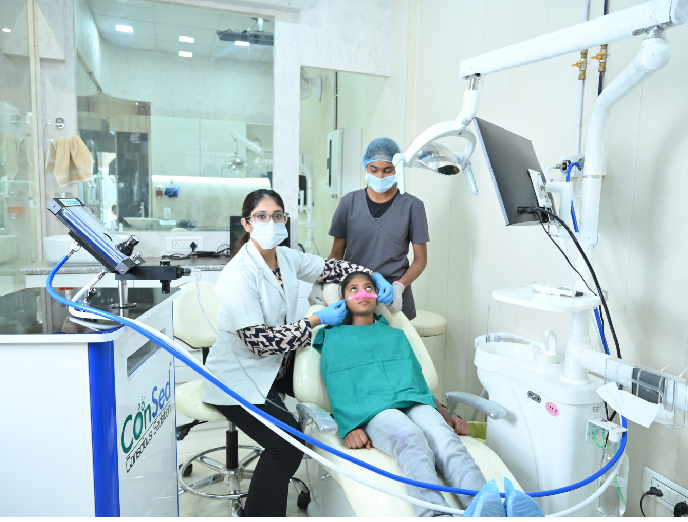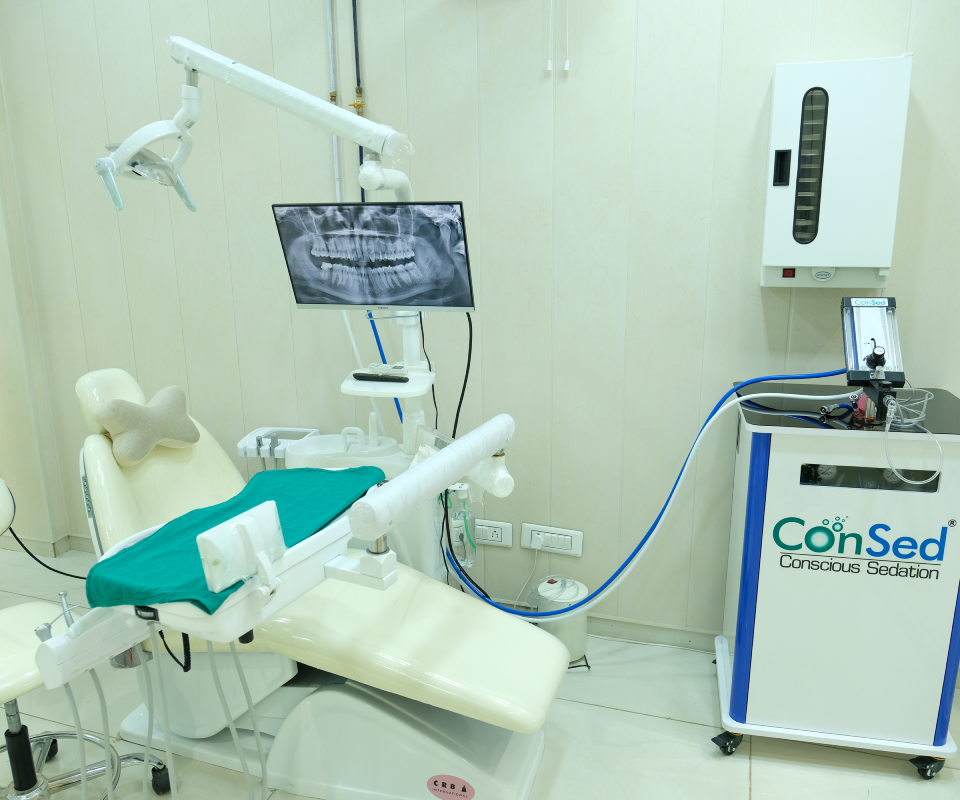
Tooth Extraction
We provide a painless tooth extraction here and we ensure your comfort and employ local anesthesia to minimize discomfort. We also provide clear aftercare instructions and schedule follow up appointments to monitor your healing and address any concerns.
Overview
When a tooth is broken, decaying, infected, or creating other oral health issues that cannot be treated, tooth extraction is a necessary dental procedure. Our tooth extraction service is intended to remove troublesome teeth quickly and safely while assuring your comfort and wellbeing throughout the process.
An Extraction may be necessary if :
- Your tooth is suffering from severe decay.
- Gum Disease loosened your tooth.
- Overcrowding is causing problems for other teeth.
- Your Tooth has been damaged in trauma.
- A mobile tooth with severe periodontal disease, pulp necrosis, or periapical abscess, for which root canal treatment is required that the patient cannot afford (or for which endodontic treatment failed)
- Teeth adjacent to a pathologic lesion that must be excised
- Aesthetic considerations (eg, teeth with endogenous staining)

Simple Extraction
- Simple extractions are performed on teeth that are visible in the mouth and can be easily accessed by forceps.
- Simple extractions are common for removing non-impacted teeth, such as most permanent molars, premolars, and front teeth.
- This type of extraction is typically used for teeth that are fully erupted (above the gumline), have a single root, and are not significantly damaged.
- Local anaesthesia is usually administered to numb the area, ensuring the patient's comfort during the procedure.
- The dentist uses dental forceps to grasp the tooth and gently rock it back and forth to loosen it from the socket. Once sufficiently loosened, the tooth is removed.
Surgical Extraction
Surgical extractions are more complex and involve the removal of teeth that are not easily accessible or require additional surgical techniques. Common reasons for surgical extractions include:
- Impacted Wisdom Teeth: Wisdom teeth (third molars) are often impacted, meaning they do not fully emerge from the gumline and may require surgical extraction.
- Broken or Fractured Teeth: Teeth that are broken at or below the gumline may need surgical extraction.
- Curved or Abnormal Tooth Roots: Teeth with curved or unusually shaped roots may require a surgical approach.
- Dense or Thick Jawbone: In cases where the jawbone is particularly dense, surgical extraction may be necessary.
- Multiple Extractions: When multiple teeth need to be removed during the same procedure, or when teeth are located in close proximity to one another, surgical extraction may be chosen for efficiency.
Why Chose Extraction
There are several reasons why tooth extraction may be chosen as a treatment option. Here’s a rearranged explanation of why tooth extraction may be necessary When a tooth is severely decayed, and the decay has reached the inner pulp, it may not be possible to save the tooth with other restorative treatmen
- Irreversible Tooth Damage
- Advanced Gum Disease
- Impending Infection
- Orthodontic Treatment
- Overcrowding

Our Departments
